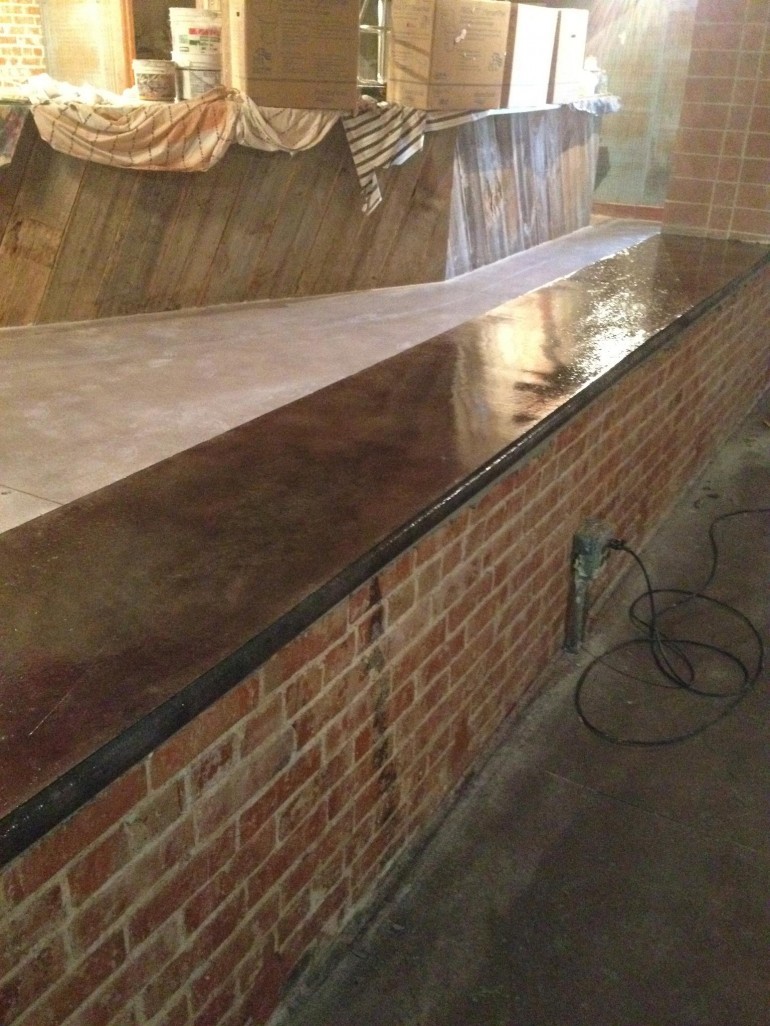
![]()
Concrete is pretty awesome stuff if you ask us. Think about it, you can make almost anything out of concrete: floors, buildings, furniture, countertops, and more. Concrete countertops are nearly indestructible and are low maintenance, which makes them a top choice among competing materials. Is concrete right for your kitchen? Let’s find out.
First, there are two options for concrete countertops. You can either have them cast in place or precast. Cast in place is having them cast on site where the concrete is poured directly into a mold on top of the cabinets. The countertops are then finished in place. The other type is precast countertops, which are cast off-site to fit specific dimensions then transported to the final destination to be installed.
There are many advantages of concrete countertops including its durability and strength. Concrete also doesn’t have to look industrial, it can easily be transformed by adding stain, dye, paint, or other coatings. Another neat thing about concrete countertops is that elements, such as drainboards, can be built directly into the countertop.
There aren’t many disadvantages to concrete countertops. In fact, the only one that we can think of is that concrete can develop tiny hairline cracks, especially when it’s cast in place. This is a result of the concrete curing and setting. The hairline cracks can be viewed as character by some, but not to worry, usually these cracks are not structural at all.
Sealers are suggested for concrete countertops to preserve the look and integrity since concrete is naturally porous and absorptive. You can use a penetrating sealer or a topical sealer. A penetrating sealer is absorbed by the concrete, but hardly detectable after it dries. This type of sealer protects the concrete from absorbing liquids when spilled, but does not create a barrier between the liquid and the concrete, so spilled liquids can leave a stain on the surface.
The other type of sealer is a topical sealer. Topical sealers include, wax, epoxy, acrylic, and urethane. A coating is formed on surface of the concrete, but it varies depending what topical sealer is used. Urethane and epoxy sealers are thicker, shiny, and are usually obvious. Wax is easy to do and looks good, but doesn’t hold up well as a sealer. Acrylic sealers perform well and look good, but scratches show up easily. As far as maintenance goes, all that is typically required for routine clean up is a cloth and mild soap. Harsh cleaners should be avoided.
We hope you consider concrete for your next project! There are so many creative and custom options for finishing concrete, but first and foremost important is the concrete itself. At Custom Concrete Creations we have state of the art equipment and a properly trained team with years of experience. Custom Concrete Creations is a premier contractor serving the Omaha area as well at the Midwest. Give us a call or send us an email for your custom concrete finishing needs today!
